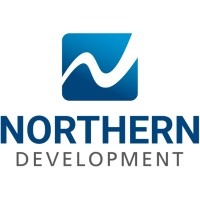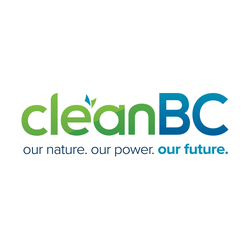
CleanBC — Commercial Vehicle Pilots Program
At a glance
- Maximum amount : 10,000,000 $
- Up to 33% of project cost
- Open Date : April 1, 2024
- Closing date : March 31, 2025
- Transportation and warehousing
- British Columbia
- For-profit business
- All revenue ranges
- All organization sizes
- Indigenous Peoples
- Rural or Northern Residents
Overview
The CleanBC Go Electric Commercial Vehicle Pilots Program aims to encourage the adoption of zero-emission vehicles (ZEVs) in British Columbia by offering funding support for the deployment of early market ZEVs and the installation of charging/fueling infrastructure. Eligible activities include purchasing or leasing on-and-off-road medium- and heavy-duty ZEVs, as well as setting up the necessary energy infrastructure to support these vehicles. The program is designed for public and private fleets, including businesses, not-for-profits, and Indigenous governments operating in B.C.
Activities funded
The CleanBC Go Electric Commercial Vehicle Pilots Program supports a variety of projects focused on the deployment of zero-emission vehicles and necessary infrastructure within British Columbia. These projects aim to reduce emissions in the commercial vehicle sector and promote the use of clean energy technology, thereby contributing to environmental and economic benefits.
- Deployment of on-road medium and heavy-duty zero-emission vehicles (ZEVs) in weight classes 3 to 8.
- Purchase or lease of new zero-emission off-road equipment such as rail, marine vessels, and other off-road vehicles.
- Installation of eligible electric charging or hydrogen fuelling infrastructure that supports the operational life of the ZEVs.
- Retrofitting of existing off-road vehicles with zero-emission technology.
- Collection and analysis of telematics performance data from funded ZEV deployments.
Eligibility
Eligibility for this grant is determined by specific requirements related to the applicant's profile and proposed activities.
- The applicant must be a business, not-for-profit, local government, Indigenous government, or public sector organization (excluding Provincial Ministries and Crowns, but including non-core entities like health authorities and school districts) located and operating in B.C.
- All businesses must be licensed to operate in B.C.; a valid B.C. business license must be provided if applicable.
- The purchaser or lessee of the vehicle technology must be the primary applicant.
- Consortiums can apply if the purchaser or lessee of the vehicle and infrastructure technology is the primary applicant.
Who is eligible?
This grant program is open to eligible public and private fleets looking to adopt zero-emission vehicle (ZEV) technologies. The primary applicants must be businesses, not-for-profits, local governments, Indigenous governments, or public sector organizations operating in British Columbia.
- Businesses licensed to operate in British Columbia.
- Not-for-profit organizations established in British Columbia.
- Local and Indigenous governments based in British Columbia.
- Public sector organizations, excluding Provincial Ministries and Crown corporations, but including non-core entities such as health authorities and school districts.
- Consortiums are also eligible if the primary applicant is the purchaser or lessee of the vehicle technology.
Who is not eligible
This grant is focused on supporting eligible public and private fleets in the commercial vehicle sector and does not mention specific exclusions based on industry or company status. However, the program emphasizes certain technical and operational criteria for participation.
- No specific companies or industries are explicitly excluded from applying based on the provided information.
Eligible expenses
The CleanBC Go Electric Commercial Vehicle Pilots Program supports specific expenses associated with zero-emission vehicle and infrastructure projects.
- Capital expenditures for vehicles and energy infrastructure.
- Site design and electrical design costs.
- Installation expenses, including labor and materials.
- Utility connection fees for energy infrastructure.
Eligible geographic areas
This grant targets organizations based in British Columbia for participation in the program. All applicants must have their primary operations located within the province as stipulated by the program's geographical eligibility requirements.
- Organizations located and operating in British Columbia, Canada.
Selection criteria
The evaluation and selection of projects for the CleanBC Go Electric Commercial Vehicle Pilots Program involve specific criteria to ensure the projects meet the program’s objectives.
- Greenhouse Gas (GHG) emissions: The scoring in this category is quantitatively linked to GHG emission reductions that the project achieves during its CVP funded lifetime.
- B.C. economic co-benefits: Subjective scoring of the project for B.C. specific economic co-benefits might have during its CVP funded lifetime.
- Air quality, health, community, and clean energy co-benefits: Subjective scoring of other air quality, health, community, and other clean energy co-benefits might during its CVP funded lifetime.
- Developed and achievable: Scores the project based on how achievable the deployment is and how quickly the vehicles and/or infrastructure can be put into active operation.
- Broader Organizational commitments: Evaluates the project based on the existence and level of detail of any organizational commitments for ZEV deployment in the applicants' broader operations.
- Demonstrated need for funding and leveraging of external funds: Evaluates the project’s proposed budget and the demonstrated need for funding and whether the project is likely to proceed without CVP funding.
- Innovation and potential to enable longer-term and larger-scale transformation of ZEVs across various commercial modes, sectors, and uses: Scores the application on its ability to foster larger scale change through the deployment of vehicles and/or infrastructure within a particular mode/vocation.
How to apply
Review Eligibility Criteria
- Visit the program website to understand applicant, vehicle, and infrastructure eligibility requirements.
- Ensure your organization and proposed project meet all specified guidelines.
Access Application Materials
- Navigate to the CleanBC Go Electric Commercial Vehicle Pilots Program website at .
- Download the applicant template, vehicle template, and budget template from the website.
Prepare Your Application
- Complete the applicant template and additional vehicle template if applicable.
- Fill out the budget template accurately and include detailed budgetary information.
- Gather necessary supporting documents such as business licenses, OEM certificates, supplier quotes, and feasibility studies.
Submit Application
- Compile all completed forms and supporting documents.
- Submit the comprehensive application via the contact email provided on the website (admin@cvpbc.ca).
Await Response
- Wait for feedback from the CVP Program team regarding the status of your application.
- Be prepared to provide additional information if requested by the Advisory Committee.
Additional information
Here are additional relevant details for this grant:
- The program aims to collect technical and operational performance data from funded projects to inform future ZEV deployments and technology development.
- Participants are required to submit quarterly progress reports to the Delivery Agent.
- A pre-qualified telematics service provider is strongly recommended for data collection, although alternative providers can be considered if they meet program requirements.
- Changes or termination of the program can occur at any time by MEMLI without prior notice.
Contacts
Frequently Asked Questions about the CleanBC — Commercial Vehicle Pilots Program Program
What is the CleanBC — Commercial Vehicle Pilots Program?
How much funding can be received?
What is the deadline to apply?
Who is eligible for the CleanBC — Commercial Vehicle Pilots Program program?
What expenses are eligible under CleanBC — Commercial Vehicle Pilots Program?
Who can I contact for more information about the CleanBC — Commercial Vehicle Pilots Program?
Where is the CleanBC — Commercial Vehicle Pilots Program available?
More programs like this

Northern Industries Innovation Fund
Northern Development Initiative Trust (NDIT)
Economic Infrastructure Program
Northern Development Initiative Trust (NDIT)
British Columbia shipbuilding and ship repair industry tax credit
Government of British Columbia
British Columbia clean buildings tax credit
BC Ministry of Finance
British Columbia logging tax credit
BC Ministry of Finance
Post-Farm Food Safety Program
Government of British Columbia
CICE 2023 Directed Call for Innovation — Measurement, Monitoring and Verification (MMV) of Carbon Management
Government of British Columbia
Small Business Recovery (SBR) Consulting Rebate
Northern Development Initiative Trust (NDIT)
CleanBC — Go Electric Other Rebates
CleanBC